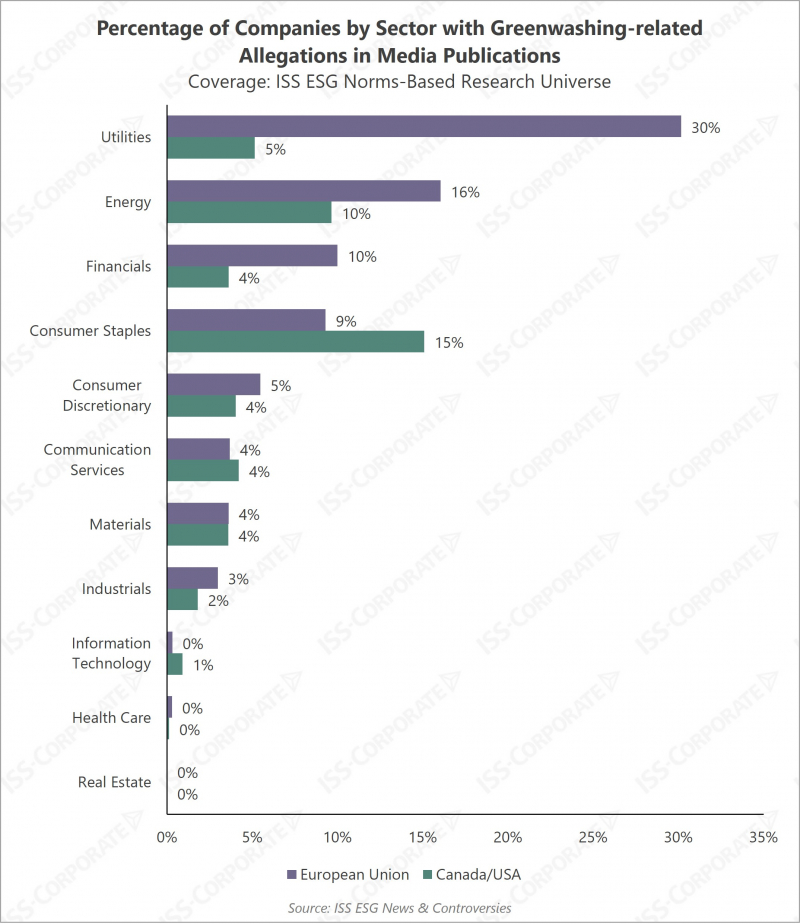
DATE PUBLISHED: September 2, 2024
Anti-Greenwashing Regulations Emerge in Canada and the EU
Regulatory Developments
In recent months, Canada and the European Union have forged ahead in passing new legislation aimed at reducing false or misleading environmental claims, a practice commonly referred to as greenwashing. Anti-greenwashing regulations aim to fundamentally improve:
- Increased consumer trust: By establishing clear and standardized guidelines and requiring companies to provide evidence for their environmental claims, consumers are empowered in purchasing a company’s product or service.
- Supporting the Green Transition: Promoting transparency and accountability in environmental claims encourages companies to make genuine progress in environmental performance.
- Standardizing claims: Defining and standardizing the methodologies for how companies make credible environmental claims allow for a consistent and fair evaluation for all companies.
Canada’s Bill C-59
Canada’s Bill C-59,[1] passed in June 2024, amends the Competition Act, introducing new requirements for companies making environmental claims about activities, products, or about the entity itself.
When making an environmental claim, corporate entities must ensure the claim is substantiated in accordance with “internationally recognized methodology.” In response to stakeholder concerns about the lack of clear definitions and criteria, the Competition Bureau of Canada, which enforces the Competition Act, has launched a public consultation to gather market feedback. The public consultation period is expected to conclude on September 27, 2024, with the results informing the development of future implementation guidance.
The amendments include provisions related to the burden of proof. When enforcing allegations of false environmental claims, corporate entities will bear the burden of proof in demonstrating any claims made are properly substantiated.
EU Green Claims Directive
The European Green Deal, passed in 2020, introduced commitments to address false environmental claims. The proposed EU Green Claims Directive (GCD)[2] expands on the commitments by setting requirements for environmental claims or labels to follow specific criteria on how to make such claims, along with independent audit requirements.
The GCD targets explicit claims related to the environmental impacts or performance of a company’s product or the company itself. Under the GCD, such claims must be substantiated, clear and accurate, based on scientific evidence, third-party accredited, relevant, and consistent with other EU labeling regulations.
The proposed directive includes considerations for assisting SMEs including measures to ensure awareness of requirements, financial support or access to financing, training, and technical assistance.
With the proposed directive published in March 2023, the EU Council expects to work with the European Parliament to finalize the directive when the next legislative cycle begins in late 2024. Member States will then have 18 months to transpose the directive into national law, with a prospective enactment date set to early 2026.
Comparison & Key Differences
| EU Green Claims Directive (proposed) | Canada Bill C-59 | |
|---|---|---|
| Scope | Voluntary environmental claims, including:
Considerations for small and medium enterprises |
Voluntary environmental claims, including:
|
| Key Requirement | Substantiation of explicit environmental claims based on an assessment meeting set minimum criteria, including but not limited to:
|
Adequate and proper testing for environmental claims, according to internationally recognized methodology.
Factors under consideration when assessing whether a test is adequate and proper may include:
|
| Enforcement | Managed by Member States
|
Managed by Competition Bureau
|
| Timeline | TBC (2026, 2027 or 2028) | Start 2025 |
| Next Steps | EU Council anticipated to finalize in late 2024 | Competition Bureau to finalize consultation in late 2024 |
Key Differences
The primary difference between the GCD and Bill C-59 centers on the amount of detail in the approach. The GCD contains detailed guidance on how to substantiate explicit environmental claims. For example, it specifies that a company must clearly state if the claim refers to the whole product or just to parts of the product.
Conversely, Bill C-59, only refers to substantiating claims according to an “internationally recognized methodology,” without any further details. The outcome of the public consultation in Fall 2024 may enable the Competition Bureau to clarify its approach.
Corporate Risks
The emergence of legislation such as the GCD and Bill C-59 address growing concerns around the potential for companies to make misleading environmental claims. Since September 2021, the Utilities, Energy, Financial, and Consumer Staples sectors have seen the largest number of greenwashing allegations in media publications. The Energy sector, often scrutinized for being at odds with increasing calls for decarbonization, received over double the number of allegations as the next highest sector. The Financial sector has seen criticism for its role in financing environmentally damaging activities while simultaneously promoting green investment products and highlighting green finance claims.
Within the Consumer Staples sector, companies have faced accusations of greenwashing through misleading advertisements of environmentally beneficial practices. In particular, practices around consumer packing production and disposal have been at the forefront of greenwashing allegations, leading to potential legal action from regulators and other watchdog organizations.

The introduction of new greenwashing regulations presents both challenges and opportunities for corporates. Standardization of environmental claims and products can provide regulatory clarity and a structured framework for making such claims, thus minimizing unintentional greenwashing. Conversely, corporates now face the challenge of navigating and implementing the complexities of new requirements for environmental claims. Additionally, increased enforcement mechanisms and penalties for false claims introduce additional compliance costs.
As Bill C-59 and the GCD enter force, the balancing of opportunities and challenges for corporates and benefits for consumers will be critical in guiding the development of potential similar regulations in the future.

